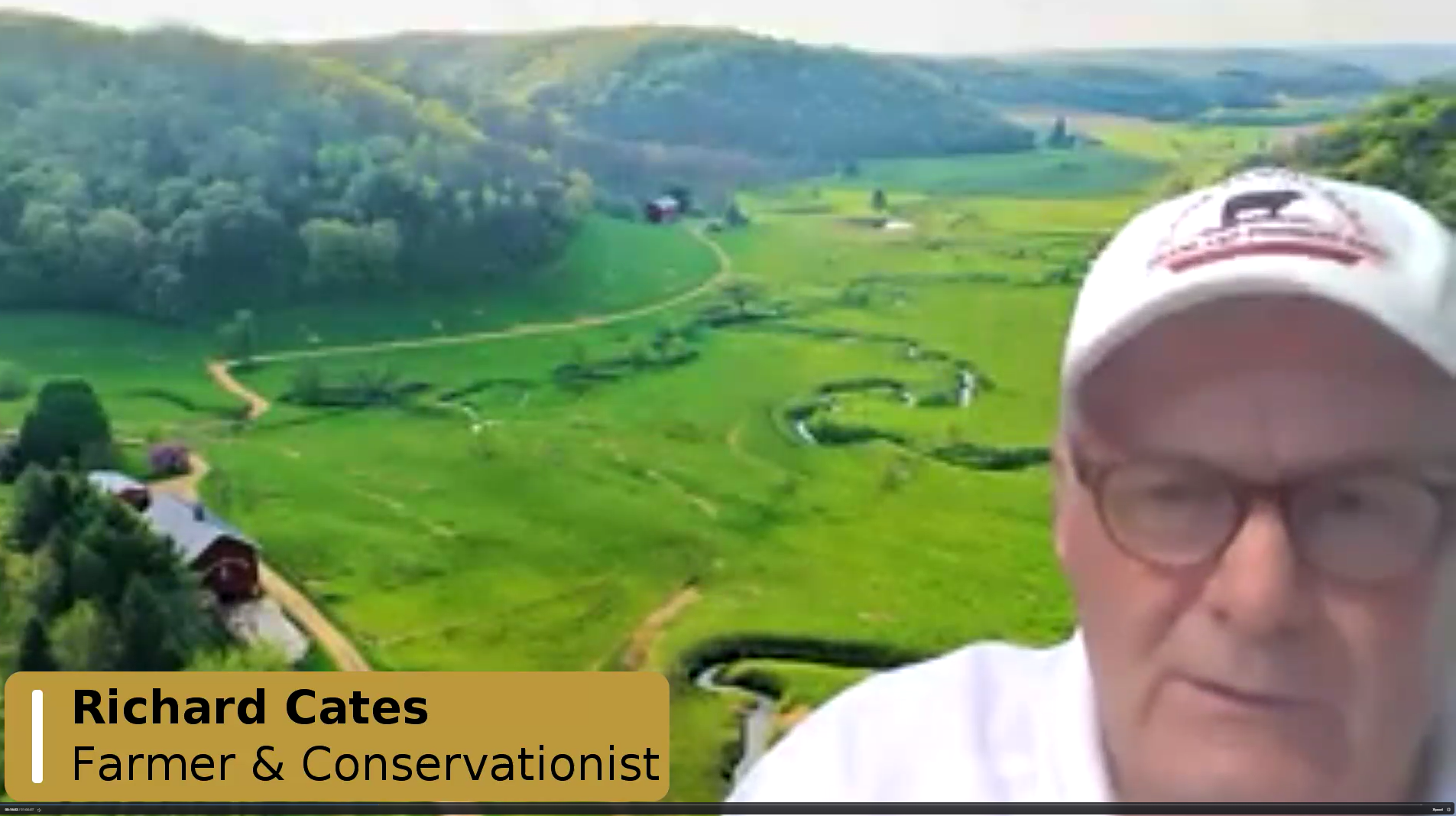Nature needs YOUR land ethic!
Stay connected through our down-to-earth e-news.


Southwest Wisconsin farmer Richard “Dick” Cates has metamorphized from a large-scale cattle rancher to farming with 100 native grazing animals moving across the landscape. In July 2025, Cates made a guest appearance on the Aldo Leopold Foundation Land Ethic Live! virtual program; participants heard about his family’s decades-long journey toward seeing the land as a community, not simply a commodity.
Water as Commons
The Cates Family Farm, a multi-generational endeavor, resisted the temptation to follow the “get big or get out” farm mantra of the 80s and instead chose to provide locally grown food for their family and the local community. In return, the hill-and-valley land has responded with ample gifts providing economic opportunity as well as ecological benefits. In his talk Cates shared details of a major indicator of successful land health: a stream now flows with naturally producing heritage breed brook trout. The Cates family’s accomplishments have had ripple effects and inspired larger efforts with neighbors through the Lowery Creek Watershed Initiative which ties folks together as a community.
Following in Leopold’s Footsteps
Once an Aldo Leopold Foundation fellow, Cates is a firm believer in telling stories of the land restoration to inspire others. Cates’ book A Creek Runs Through This Driftless Land: A Farm Family’s Journey Toward a Land Ethic was published in 2024. In the forward, Aldo Leopold Foundation Senior Fellow Stanley Temple wrote that that Cates family “follows in Leopold’s footsteps in their care for the people and the land and by showing us how the family has lived joyfully and sustainably on the land while providing by their example a substantial service to conservation.”
Impressions from this Former Farm Kid
I listened to Cates’ talk with great interest. A former farm kid of the 70s-80s, I witnessed the pressures of small family farming in Wisconsin. Cates’ message resonates: to follow your heart, partner with people who know more than you do, and that it’s not necessary to own land to have an impact. Even if we live in a city or suburb, we can think differently about the land: how can each one of us help improve public lands where we live such as a city park or contribute to community gardens? Cates reminds us that we can all chose to have a more ethical relationship with our natural environment.
Watch the Replay and Link to More Information
Here are some links to resources related to this blog post:

The Aldo Leopold Foundation was founded in 1982 with a mission to foster the Land Ethic® through the legacy of Aldo Leopold, awakening an ecological conscience in people throughout the world.
"Land Ethic®" is a registered service mark of the Aldo Leopold Foundation, to protect against egregious and/or profane use.
Stay connected through our down-to-earth e-news.